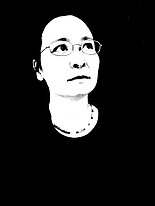Dr. Sonja Schierbaum
Leiterin der Emmy Noether-Gruppe „Praktische Gründe vor Kant (1720-1780)“
Neubaustraße 11, Zimmer 157
97070 Würzburg
Tel.: 0931/31-87301
sonja.schierbaum@uni-wuerzburg.de
Sprechstunde:
Nach Absprache per e-mail entweder per Zoom oder persönlich.
Lehrveranstaltung im Sommersemester 2025:
Seminar Mögliche Welten im 18. Jahrhundert (zusammen mit Dr. Jon Bornholdt)
Forschungsschwerpunkte:
- Historisch: Mittelalter und frühe Neuzeit
- Systematisch: Erkenntnistheorie, Philosophie des Geistes, Handlungstheorie
Curriculum Vitae:
- ab März 2019 Leiterin der Emmy Noether Gruppe „Praktische Gründe vor Kant (1720-1780)“ an der MLU-Halle-Wittenberg, zum 1. April 2020 Wechsel der Gruppe an die Uni Würzburg
- Dezember 2015 bis Februar 2019: Wissenschaftliche Mitarbeiterin Uni Hamburg (DFG "Eigene Stelle": ‚Handeln: Zwischen Freiheit und Rationalität – Leibniz, Crusius und der Satz vom zureichenden Grund‘)
- 2012 bis 2014: Post Doc Stipendium an der HU Berlin bei Prof. Perler
- 2012 Promotion in Philosophie, Universität Hamburg. Titel der Arbeit: “Mental Speech and the Content of Thought: Ockham on True Propositions and Evident Assent”, Gutachter: Prof. Wolfgang Künne (Hamburg), Prof. Dominik Perler (Berlin)
Aus den Publikationen der letzten fünf Jahre:
Bücher, Herausgeberschaften:
- Untertan, Staatsbürger, Mensch. Beiträge zur Kritik und Rechtfertigung bürgerlicher Rechte in der deutschen Aufklärung, co-edited with Dietrich Schotte. Schwabe, 2024.
- Varieties of Voluntarism in Medieval and Early Modern Philosophy, co-edited with Jörn Müller, Routledge 2024.
- Christian Wolff’s German Ethics. New Essays, co-edited with Michael Walschots and John Walsh, Oxford University Press 2024.
- „Negative judgement: ancient, medieval and modern perspectives”, in collaboration with Dr. Mika Perälä (University of Helsinki), special issue of Topoi 39:3 (2020).
- „Ockham’s Assumption of Mental Speech: Thinking in a World of Particulars“, (Investigating Medieval Philosophy 6), Leiden: Brill, 2014.
- „Selbstbezug und Selbstwissen. Texte zu einer mittelalterlichen Debatte“. Hrg., übers. u. komm. v. Dominik Perler und Sonja Schierbaum. Klostermann, Rote Reihe Bd. 71, 2014.
Buchkapitel:
- „Irrtum bei Crusius – vermeintliche und wahre Gewißheit“, in: Das Denken des falschen Denkens denken. Epistemische Negativität bei Kant im Kontext, Martin Hammer /Axel Gelfert (Hrsg.), J.B. Metzler, Dezember 2025.
- ‘Ockham’s Ontological Reductionism: The Case of Moral Goodness ‘, in: Mind and Obligation in the Long Middle Ages, J. Kaukua, V. Lähteenmäki, J. Toivanen (eds), Brill, 2024, 238-261.
- “Crusius against the Arbitrariness of Moral Obligation: An Alternative to Theological Voluntarism?” In: Varieties of Voluntarism in Medieval and Early Modern Philosophy, co-edited with Jörn Müller, Routledge 2024, 271-289.
- “Can the Will Go Wrong on Its Own? Wolff's Conception of a Deficit of the Will”, in: Christian Wolff’s German Ethics. New Essays, co-edited with Michael Walschots and John Walsh, Oxford University Press 2024, 253-269.
- (co-authored with Michael Walschots) 'Necessitation, Constraint, and Reluctant Action: Obligation in Wolff, Baumgarten, and Kant’, In: Baumgarten and Kant on the Foundations of Practical Philosophy. Edited by C. Fugate and J. Hymers. Oxford University Press, 2024, 71-89.
Aufsätze (Auswahl):
-
Moral Improvement: A Live Option? Wolff’s Perfectionism and Zagzebski’s Moral Exemplarism. Topoi (2025). doi.org/10.1007/s11245-025-10183-7
rdcu.be/ekNSY -
“Crusius on Self-Awareness and Self-Knowledge: The Case of Desires.” In: Philosophica – International Journal for the History of Philosophy, vol. 31, No. 2 , December 2023.
-
Motivation and Beyond? The Role of Love (amor) in Ockham’s Theory of Action. History of Philosophy Quarterly, 40, 2023, 109-131. 10.5406/21521026.40.2.02.
-
“Dissolving the Air of Inconsistency: Ockham on Virtuous Volitions and Cognitive Error”, in: The Will and Its Acts in Late Medieval Ethics and Theology, R. Fedriga and M. Michalowska (eds.), Leiden: Brill, 2023.
- "Crusius über die Vernünftigkeit des Wollens und die Rolle des Urteilens" Deutsche Zeitschrift für Philosophie, vol. 69, no. 4, 2021, pp. 607-618. https://doi.org/10.1515/dzph-2021-0051
- „Choosing for no reason? An old objection to freedom of indifference“, in: History of Philosophy Quarterly, vol. 37, no. 2, 2020, pp. 183–202.
- „Christian Wolff über motivierende Gründe und handlungsrelevante Irrtümer“, in: Archiv für Geschichte der Philosophie. Online erschienen: 4. März 2021 doi.org/10.1515/agph-2019-0073.
- „Umgang mit sich selbst als Dialog: Hannah Arendts Modell des Denkens“, in: Zeitschrift für philosophische Forschung 73 (2019), 2.
- „Freedom of Indifference: Its Metaphysical Credentials According to Crusius“, in: Fudan Journal of the Humanities and Social Sciences, 2019, DOI 10.1007/s40647-019-00253-7, 2019.
- „Late Medieval Theories of (Self-)Consciousness”, in: Philosophy of Mind in the Late Middle Ages & Renaissance, St. Schmid (ed.), vol. 3 of the series History of Philosophy of Mind, Acumen Press 2019, 125-143.
- „Ockham on Awareness of One’s Acts: A Way Out of the Circle”, in: M. Klein, N. Osorio-Kupferblum, O. I. Tóth (eds.), Consciousness and Memory in Medieval and Early Modern Philosophy, special issue of Society and Politics, vol.12, no.2 (online edition), 2018.
- „Intellections and Volitions: Ockham’s Voluntarism Reconsidered”, in: J. Pelletier; M. Roques (eds.), The Language of Thought in Late Medieval Philosophy, Springer: Dordrecht, 2017, 125-143.
- „Between the Natural and the Supernatural: Ockham on Evident Judgements”, in: Topoi: 2016:1-10, open access, First online: 24 dec.
- „Chatton’s Critique of Ockham’s Conception of Intuitive Cognition”, in: The Opponents of Ockham, Chr. Rode (ed.), Leiden: Brill, 2016, 15-46.
- „Ockham on Tense and Truth”, in: Time and Tense, St. Gerogiorgakis (ed.), Philosophia Verlag (series: Basic Philosophical Concepts), München, 2016.
- „Ockham on the Possibility of Self-Knowledge: Knowing Acts without Knowing Subjects” Vivarium 52:3-4 (2014): 220-240.





